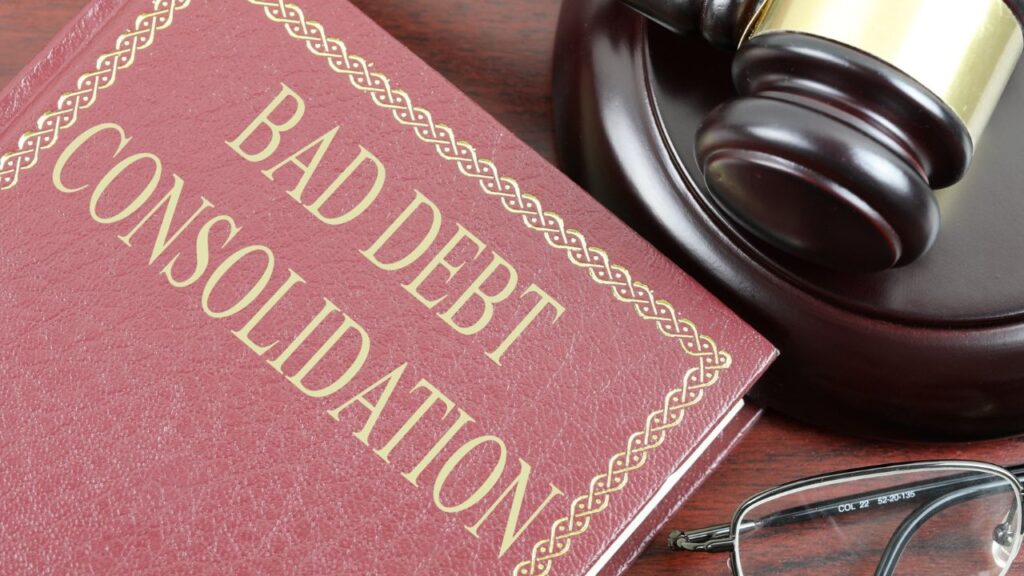Is A HELOC A Good Idea For Debt Consolidation? A HELOC can be a good idea for debt consolidation if you have significant equity in your home and qualify for a low interest rate.
If you’re drowning in high-interest debt—like credit cards, medical bills, or personal loans—you’re probably looking for a way out that doesn’t leave you even deeper in the financial hole.
One strategy that many homeowners consider is tapping into their home equity through a HELOC, or Home Equity Line of Credit.
But is a HELOC a good idea for debt consolidation?
The short answer: It can be, but it comes with serious responsibilities and risks. Let’s break down how a HELOC works, why it can be a powerful tool to eliminate debt, and when you should think twice before using one.
Contents
- 1 What is a HELOC, Exactly?
- 2 Why Use a HELOC for Debt Consolidation?
- 3 The Risks of Using a HELOC for Debt Consolidation
- 4 When a HELOC Makes Sense for Debt Consolidation
- 5 When to Avoid Using a HELOC
- 6 How to Use a HELOC for Debt Consolidation (Step-by-Step)
- 7 Alternatives to a HELOC for Debt Consolidation
- 8 Final Thoughts: Is A HELOC A Good Idea For Debt Consolidation?
- 9 FAQs
What is a HELOC, Exactly?
A HELOC is a revolving line of credit that’s secured by the equity in your home. Think of it as a credit card with a much lower interest rate—but backed by your house.
If your home is worth $400,000 and you owe $250,000 on your mortgage, you might have around $150,000 in equity. A lender could allow you to borrow a portion of that—often up to 85%.
Unlike a home equity loan (which gives you a lump sum), a HELOC lets you borrow what you need, when you need it, during what’s called the “draw period” (usually 5–10 years). After that, you enter the “repayment period,” where you start paying down both principal and interest.
It’s flexible, affordable compared to credit cards, and can offer major breathing room—if used correctly. [Is A HELOC A Good Idea For Debt Consolidation?]
Why Use a HELOC for Debt Consolidation?
You probably already know how painful it is to carry credit card balances with 20%+ interest. Using a HELOC to pay off those debts can potentially:
- Lower Your Interest Rate
HELOCs typically have much lower interest rates than credit cards or unsecured loans. That means more of your money goes toward actually paying off the debt—not just covering interest.
- Simplify Your Finances
Managing multiple minimum payments is stressful and confusing. A HELOC allows you to consolidate those into one payment, making it easier to track and budget.
- Access a Large Credit Limit
If you’ve built up a lot of equity in your home, you may be able to borrow tens of thousands of dollars—enough to wipe out several debts at once. [Is A HELOC A Good Idea For Debt Consolidation?]
- Flexible Borrowing
You don’t have to take all the money at once. You can borrow only what you need when you need it, making it more adaptable to your cash flow.
- Potential Tax Benefits
In some cases, HELOC interest is tax-deductible if the funds are used for home improvements. While this doesn’t apply to debt consolidation, it’s good to keep in mind if you plan to use the HELOC for other purposes later.
The Risks of Using a HELOC for Debt Consolidation
Before you get too excited, here’s the reality check: a HELOC is secured by your home. If you can’t repay it, you’re not just dealing with creditors—you’re potentially facing foreclosure.
Let’s take a closer look at the key risks:
- Your Home Is on the Line
This is the biggest risk. Unlike credit cards, HELOCs are secured loans. If you default, the lender can force the sale of your home to recoup what you owe. [Is A HELOC A Good Idea For Debt Consolidation?]
- Variable Interest Rates
Most HELOCs have variable rates. That means your interest rate—and monthly payment—can increase over time, especially in a rising interest rate environment.
- Temptation to Re-Accumulate Debt
You pay off your credit cards using the HELOC… but then start charging them up again. Now you’ve got two piles of debt instead of one. If you lack financial discipline, this is a real danger.
- Closing Costs and Fees
HELOCs often come with appraisal fees, annual fees, and closing costs. These might reduce or even cancel out your savings depending on the lender.
- Reduced Flexibility in the Future
Tapping into your home equity now means you have less to use later—for emergencies, renovations, or future investment opportunities.
When a HELOC Makes Sense for Debt Consolidation
Using a HELOC to consolidate debt can be a strategic move, especially if you:
- Have at least 15–20% equity in your home
- Are confident in your income stability
- Have a plan and discipline to avoid new debt
- Want to save on interest and get out of debt faster
A HELOC isn’t for everyone, but if you fit those criteria, it can be one of the most affordable ways to pay off high-interest debt.
When to Avoid Using a HELOC
A HELOC is not a good idea if:
- Your income is unstable or uncertain
- You’re already struggling to manage spending
- You don’t have much equity in your home
- You’re likely to run up debt again after paying it off
Also, if you’re planning to move or sell your home soon, using a HELOC might complicate the process or reduce your net proceeds.
How to Use a HELOC for Debt Consolidation (Step-by-Step)
If you’ve weighed the pros and cons and feel ready to move forward, here’s a quick guide:
Step 1: Check Your Equity
Use online estimators or get a home appraisal to find out how much equity you have.
Step 2: Compare Lenders
Shop around for HELOCs with the lowest rates, minimal fees, and flexible terms. Credit unions often offer competitive options.
Step 3: Apply for the HELOC
You’ll submit documents (proof of income, credit score, property details), and the lender may order a home appraisal. [Is A HELOC A Good Idea For Debt Consolidation?]
Step 4: Pay Off Your Debts
Once approved, use the HELOC funds to pay off high-interest balances. Be strategic and prioritize the most expensive debts first.
Step 5: Make a Repayment Plan
Set a monthly budget to repay your HELOC quickly. The faster you pay it down, the less interest you’ll pay in total.
See Also: Can A Pension Be Garnished For Credit Card Debt?
Alternatives to a HELOC for Debt Consolidation
Not sure about using your home to manage debt? You have options:
- Personal loans: Fixed-rate, unsecured loans with predictable payments.
- Balance transfer credit cards: 0% APR for 12–18 months, ideal if you can repay quickly.
- Debt management plans: Nonprofit agencies negotiate with creditors on your behalf.
- Cash-out refinance: Replace your mortgage with a larger one and take the difference in cash.
Each option has pros and cons. The right choice depends on your financial habits, debt level, and home equity.
Final Thoughts: Is A HELOC A Good Idea For Debt Consolidation?
Using a HELOC for debt consolidation can absolutely be a smart move—if you approach it responsibly.
It can lower your interest costs, simplify your finances, and help you become debt-free faster. But it’s not without risk. You’re literally betting your house on your ability to stay on track.
So, ask yourself:
- Am I financially stable?
- Can I resist the temptation to re-accumulate debt?
- Do I fully understand the terms and risks?
- Do I have a clear plan to repay the HELOC?
If you answer “yes” to all of the above, a HELOC might just be the tool you need to turn your financial life around.
FAQs
Will using a HELOC hurt my credit score?
Temporarily, yes. Applying for a HELOC results in a hard credit inquiry, which may slightly lower your score. However, paying off high balances with HELOC funds can improve your score over time.
Can I still sell my home if I have a HELOC?
Yes, but you must pay off the HELOC balance when you sell. It acts as a lien on your property, just like your primary mortgage.
What happens if I can’t repay my HELOC?
Defaulting on a HELOC could result in foreclosure. If you fall behind, your lender has the legal right to take action to recover the loan.
How much can I borrow with a HELOC?
Most lenders allow you to borrow up to 85% of your home’s appraised value minus your current mortgage balance.
What’s the difference between a HELOC and a home equity loan?
A HELOC is a flexible, revolving line of credit with a variable interest rate. A home equity loan is a fixed-rate loan with set monthly payments and a lump sum disbursement.

Kaiya Acosta recently finished studying finance. He has always wanted to create a blog about money. Now, he is making his dream real. Kaiya is from Texas, USA, and loves helping people learn how to manage their money better.

